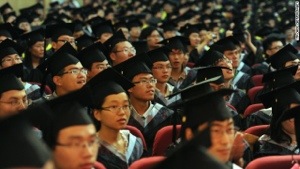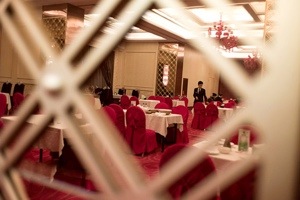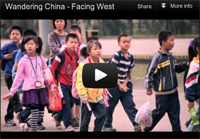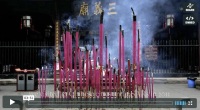Facing west, however – A report by the two million-readership New Yorker (September 7, 2012) featured the headline
Singaporean Tells China U.S. Is Not in Decline. It focused on the Singapore prime minister’s speech (first was in 2005) at the Central Party School under the theme “
China and the World – Prospering and Progressing Together“.
BEIJING — In an unusual public airing of strategic problems surrounding China’s rise, the prime minister of Singapore, Lee Hsien Loong, warned China on Thursday that it should view the United States not as a declining power, but as a nation with the ability to innovate and bounce back.
Is Singapore in a position to ‘warn‘ China? Many years ago, what Lee Kuan Yew had to say, Deng Xiaoping was stirred to listen.
But at best, it represented a scalable model where authoritarian capitalism (with some room for deliberation) could work in, albeit in a very finite space of just 600+km2. For twenty years since official ties were made the Chinese have been sending its mayors to Singapore for training That is probably one of the few valued contributions Singapore can provide in the mind of the Chinese. Further down the road, does the relationship between the younger Lee and China simply carry the same resonance? Perhaps what is lacking is the interpersonal relationship with key figures that
his father had.
Indeed, the little red dot requires a myriad of interlocking regional strategic engagements to keep it safe – it has to stay ‘as neutral as possible’ despite its obvious Chinese-majority population and ruling class while providing the US naval support since the 60s.
Here is a link to the full speech here (in Chinese with the English translation)-
I think the NY Times does stir with fourth estate dyslexia by couching the speech as a warning.
A scan of the speech will reveal the overarching theme is interdependence and some pointers Lee Hsien-Loong sees as necessary bilateral Sino-US ingredients for a stable environment for Singapore to continue to thrive. With a minute domestic market dependent on imports for natural resources, Singapore’s ingredient for survival is to avoid and help manage conflict at all cost. So – Warning, it is not.
It hardly makes sense for Singapore to stand up to, for there is little strategic leverage in, ‘warning’ China. It understands China’s position as it shares cultural traits and arguably a lasting one-party model (China’s from 1949, Singapore’s from 1965). However, by tapping on memories of its long history of western education since 1819, the Singaporean perspective can offer useful pointers on keeping an East-West equilibrium for the region.
Thoughtful Americans, both Democrat and Republican, also understand that any attempt to contain China is doomed to fail. US-China relations in the 21st century cannot be compared to ties between the US and the Soviet Union during the Cold War. Trade between the US and Soviet Union was negligible, and nuclear deterrence was the primary stabilising factor. Today, China and the US are profoundly intertwined, and their relationship is stabilised by mutual economic dependence. The US cannot hold China back without hurting itself at the same time. Neither would European or Asian countries join such a misguided effort to contain China. My Foreign Minister stated this view clearly in a widely reported speech in Washington earlier this year, a view which many American officials accepted. Ultimately, both China and the US must develop a new modus vivendi that reflects current realities and benefits both sides. Lee Hsien-Loong, at the Central Party School
– – –
China ‘faces challenges within itself’
This is an excerpt from a transcript of a dialogue Prime Minister Lee Hsien Loong had with senior Chinese party officials at the Central Party School in Beijing on Thursday.
Source – Straits Times, published September 8, 2012

China and Singapore started the Tianjin Eco-City project in 2007. PM Lee said Singapore would like its cooperation with China ”to develop into new areas which are relevant to both sides as our societies change”. — ST PHOTO: LIM WUI LIANG
Bilateral ties between China and Singapore are good, but both countries have differing views on some important regional and global issues. How do you think we can communicate and work better on these issues? How do you see the relationship between Singapore and China going forward?
PM Lee: China is a big country growing rapidly. Singapore is a small country also seeking to prosper in Asia. We wish Asia to be stable, and the region to be open and prosperous together.
Nobody wants to see a conflict in the South China Sea, but our position cannot be the same as China’s position simply because China is a claimant-state. Singapore is not a claimant-state. Therefore Singapore cannot take sides or judge the merits of the different claims to the South China Sea. Read the rest of this entry »
Filed under: ASEAN, Beijing Consensus, Channel News Asia, Charm Offensive, China Daily, Chinese Model, Collectivism, Confucius, Culture, Domestic Growth, East China Sea, Economics, Environment, Finance, global times, Government & Policy, Greater China, Hu Jintao, Influence, International Relations, Media, New York Times, Overseas Chinese, Peaceful Development, Politics, Public Diplomacy, Resources, Singapore, Soft Power, South China Sea, Straits Times, Tao Guang Yang Hui (韬光养晦), Territorial Disputes, The Chinese Identity, The construction of Chinese and Non-Chinese identities, Trade, U.S., China's Rise, Economics, Environment, International Relations, Politics, Public Diplomacy, Singapore, South China Sea, Strategy, U.S.

















The Sharing Circle